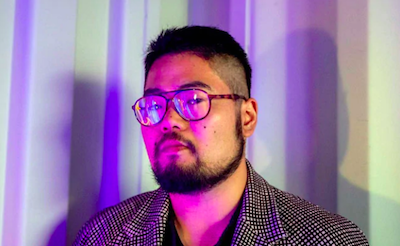Badiucao: The Voice of Chinese Dissent

Badiucao (Photo: Creative Commons)
March 4, 2022
The year’s Winter Olympics was held in Beijing, China, now the first city to have hosted both a Summer and Winter Olympics. The 2022 Winter Olympics, a highly celebrated international event featuring a variety of winter sports, was met with great excitement and high expectations. However, amidst the fervor was another voice: that of Badiucao, the dissident artist and fierce critic of China’s human rights abuses.
Political artist Badiucao uses his artwork to challenge the Chinese regime and its brutalities. Considering the country’s high censorship and its intolerance of any perceived form of disrespect, Badiucao has worked to become the voice of the people. Following his self-exile from China in 2009, he resettled himself in Australia and began to travel the world to circulate his artworks under his pseudonym, Badiucao, which, in Chinese, purposely means nothing. “I sometimes just imagine I’m this kid who’s holding a big rock, and just throws rock into the lake so that we see all of the splash, all the change,” Badiucao said in a 60 Minutes interview.
As the host of the 2022 Winter Olympics, the Chinese government has received considerable international attention. Badiucao has taken advantage of this circumstance in order to further publicize his work and disclose why China is a problematic host. “That’s exactly how China is going to use [the] Olympics,” Badiucao said. “Not as a celebration for humanity, but actually use it as a platform to [promote] its propaganda, which is fundamentally cracking down on people’s basic rights.” He created a collection of Olympics-related artworks that subtly criticize the Chinese government’s violations of human rights in an attempt to bring greater awareness to the Chinese Communist Party’s undiscussed atrocities.
However, Badiucao’s rise as a political artist and challenger of the Chinese regime was an abrupt one tied to chance. It was only in 2007, when Badiucao was a law student in Shanghai, his hometown, that his passion for activism, specifically against the low-coverage of Chinese brutality, was sparked when he first learned of the 1985 student protest in Tiananmen Square. Badiucao was watching an online film when footage of the protest, which was embedded into the movie, was showcased. Badiucao was shocked, considering that this was the first time that he had ever learned of the Tiananmen Square massacre, and how easily such events could be covered up, which prompted his self-exile from China. Upon settling in Australia, Badiucao abandoned his career path towards law and began drawing, although he had no professional training. He engaged in street art that highlighted China’s suppression of challenge.
Of his first performances was Badiucao’s statement in front of Berlin’s Brandenburg gate, done in homage to “Tank Man,” an unidentified protester who famously stood in front of oncoming Chinese military tanks in 1989. “Tank Man is the ghost haunting CCP the most. It shows that any ordinary people or person could have the courage to stand in front of the most powerful object,” Badiucao said on 60 Minutes. “This ordinary Chinese guy, who just collect all the courage in the world, and pushed himself in front of tank. He is fearless.”
Badiucao has taken it upon himself to continue to challenge the Chinese regime in the footsteps of Tank Man. “I guess it’s this attitude that, I don’t care about how serious you are, how dangerous you are,” Badiucao said. “I’m just going to be myself. I am an individual, I’m not controlled by any authority, certainly not CCP. That scares them, because all they want is total control.”
In his 60 Minutes interview, Badiucao also revealed how he at times could identify with Sisyphus, the figure from Greek mythology. “His mission seems like, doomed, that he will never push the rock to the very top of the mountain. It’s a bit like me,” Badiucao said. “When I’m creating artworks to challenge the Chinese regime. I don’t know when it will be changed, or I don’t know if my work will change it at all. But even if that is a reality, does it mean my work has no meaning? I don’t think so.” Despite the frustrations of challenging a seemingly indomitable opponent, Badiucao believes that his efforts are not in vain. “I want to be an inspiring figure. I want my art to helping others to collecting courage and join me. But if I’ve giving up this, then what does this say to the rest of them?”
Zhou Fengsuo, a student who had marched in the Tiananmen Square protest who has since resettled in the United States, added his thoughts in regards to Badiucao’s work in the 60 Minutes interview. “It’s important for the next generation to carry the torch on. And I see this hope on him, and he’s so creative,” Zhou Fengsuo said. Zhou Fengsuo added his concerns that the Chinese influence over the world, particularly from US companies, may contribute to the lack of government brutality coverage. However, the voices of each individual continue to carry on the hope of bringing change. “But still, they can not change Badiucao. This one single person who can always come out with endless arts challenging the authority… That’s the spirit of Tank Man, the person versus totalitarian nation.”
Although the 2022 Winter Olympics are now officially over, Badiucao continues to work towards creating a global conversation through his artworks. “I think this is the reality, that Chinese people do not have a sense of safety that they can speak freely,” Badiucao said. “But I am in this very privileged position that I am not in China, so I have every responsibility to make my voice to be heard. To become their voices.”
















































































































































